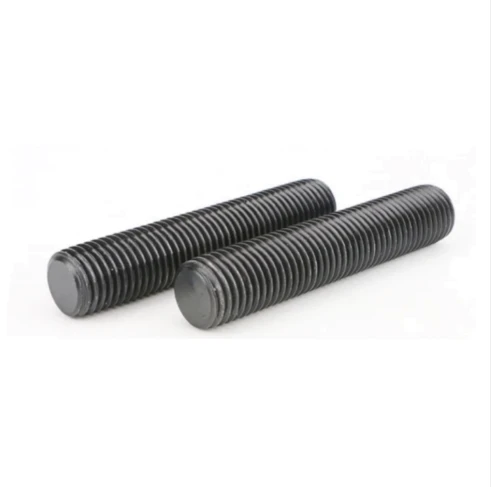Reliable Exporter of Reverse Thread Bolts for Various Applications
ડીસેમ્બર . 06, 2024 00:07 Back to list
Reliable Exporter of Reverse Thread Bolts for Various Applications
Understanding Reverse Thread Bolts and Their Export Opportunities
In today's globalized economy, the fastener industry has seen immense growth and evolution. Among the various types of fasteners, reverse thread bolts are gaining popularity across various sectors including automotive, construction, and machinery. Their unique design and application make them a focal point for exporters looking to tap into international markets.
What Are Reverse Thread Bolts?
Reverse thread bolts, often referred to as left-hand thread bolts, are engineered to rotate counterclockwise. This design is particularly useful in applications where the bolt may be subjected to rotational forces in the opposite direction of conventional bolts. Traditionally, most bolts are right-handed, which means they tighten by turning clockwise; however, reverse thread bolts provide an innovative solution for specific mechanical requirements.
These bolts are essential in applications where vibrations or torque could cause standard bolts to loosen over time. Industries utilizing these specialized fasteners benefit from the enhanced security and durability they provide, making them increasingly vital in high-stakes environments such as aerospace, automotive, and heavy machinery.
Market Demand and Export Opportunities
The global demand for reverse thread bolts is on the rise, driven by the need for more efficient and secure fastening solutions. As industries evolve, the specification for unique and reliable components has become a priority. Exporters can leverage this demand by specializing in reverse thread bolts, aligning their production capabilities with the specific needs of diverse industries.
Countries such as the United States, Germany, and Japan are leading markets for high-quality fasteners, including reverse thread bolts. As these nations emphasize innovation and quality in manufacturing, the necessity for reliable fastening solutions becomes increasingly important. Exporters can benefit by producing high-grade materials that meet or exceed international standards.
Production Considerations
reverse thread bolts exporter

To ensure success in exporting reverse thread bolts, manufacturers must focus on several critical production considerations. First and foremost is the material used. Factors like strength, resistance to corrosion, and durability are paramount, particularly in industries where these bolts face extreme conditions. Typical materials might include carbon steel, stainless steel, and other alloys that provide the required strength and longevity.
Secondly, precision engineering is crucial. The accuracy of the reverse threads is vital for the functionality of the bolt. Any inconsistencies can lead to failures in assembly, compromising the integrity of the whole structure. Consequently, investing in advanced manufacturing technologies and quality control processes is essential for exporters aiming to establish a strong foothold in the international market.
Regulatory Compliance
Exporters must also navigate various regulatory landscapes. Understanding the international standards and compliance requirements for reverse thread bolts can be complex but is necessary for successful exportation. Organizations such as ISO (International Organization for Standardization) and ASTM (American Society for Testing and Materials) provide guidelines and standards that these products must meet. By adhering to these standards, exporters not only ensure the quality of their products but also gain credibility in the international market.
Marketing and Distribution Strategies
To effectively market reverse thread bolts, exporters need to develop comprehensive strategies. This includes identifying target markets, establishing reliable distribution channels, and differentiating their products from the competition. Emphasizing the benefits of using reverse thread bolts—such as reduced risk of loosening due to vibrations—will resonate well with potential buyers.
Additionally, participating in international trade shows and exhibitions can provide valuable networking opportunities and exposure to potential clients. Building relationships with manufacturers and suppliers in various industries can facilitate a smoother entry into new markets.
Conclusion
The export of reverse thread bolts stands at an intersection of opportunity and innovation. With the right focus on production quality, compliance, and marketing strategies, exporters can position themselves to capitalize on the growing demand for these unique fasteners. As industries continue to evolve and require higher performance and reliability in their components, reverse thread bolts are poised to become essential fixtures in the fastener market, representing a lucrative opportunity for well-prepared exporters. Embracing this niche can ultimately lead to significant advancements in business growth and product development in the fastener landscape.
Latest news
-
Premium Cabinet Bolts Supplier | Wholesale & Custom Solutions
NewsAug.24,2025
-
Reliable Axle Nuts Supplier | Quality & Precision Fasteners
NewsAug.23,2025
-
Durable Bolts for Lawn Mower Handle - Top Supplier & Manufacturer
NewsAug.22,2025
-
High-Quality Bolts for Lawn Mower Handle Supplier & Manufacturer
NewsAug.21,2025
-
Reliable Axle Nuts Supplier | High-Quality Automotive Parts
NewsAug.19,2025
-
Premium Wire Bolts Suppliers | Durable & Reliable Fasteners
NewsAug.18,2025
